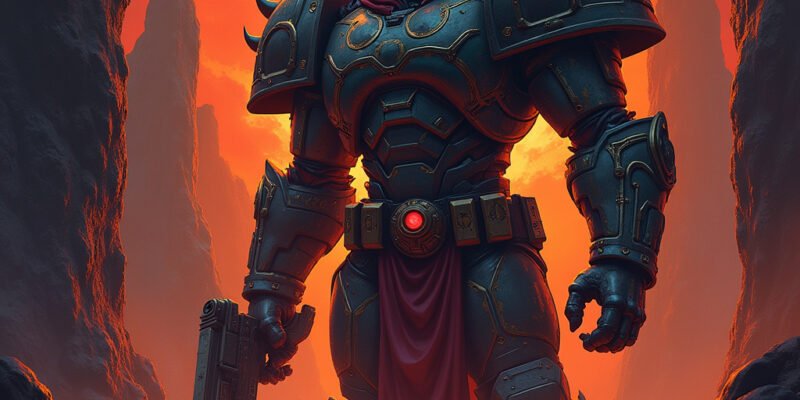Introduction
In the realm of video games, few titles have made as lasting an impact as Doom. Released in 1993, it revolutionized the first-person shooter genre and left an indelible mark on gaming culture. However, the term ‘Doom’ can also evoke thoughts of a darker period known as ‘The Dark Ages.’ This article explores the intriguing connection between the game and the historical context of the Dark Ages, revealing how they intertwine and influence modern perceptions.
What Happened?
The Dark Ages, typically defined as the period from the fall of the Roman Empire to the beginning of the Renaissance, spans roughly from the 5th to the 15th century. This era is often characterized by a decline in cultural and economic activity in Western Europe, marked by invasions, feudalism, and limited literacy.
On the other hand, Doom, the video game, thrust players into a hellish landscape filled with demons and monsters to defeat. The game’s narrative involves a space marine battling through various levels of a Martian moon, encountering terrifying foes and navigating through gruesome settings. The juxtaposition of these two ‘Dooms’ raises fascinating questions about the themes of darkness, chaos, and survival.
Details and Context
During the Dark Ages, Europe witnessed significant shifts. The collapse of centralized Roman authority led to a fragmented society where local lords wielded power over their territories. This feudal system created a landscape rife with conflict and instability. Moreover, the spread of Christianity began to reshape cultural and spiritual life, but challenges such as Viking invasions and internal strife made survival a constant battle.
Similarly, in the world of Doom, players find themselves in an unforgiving environment, where survival hinges on quick reflexes and strategic planning. The game’s use of dark, foreboding aesthetics mirrors the uncertainty and fear prevalent in the Dark Ages. Both scenarios evoke a sense of impending doom, whether from external threats or the inner struggles of human resilience.
Analysis of Themes
When examining the themes of Doom and the Dark Ages, several parallels emerge. Both periods reflect a struggle against overwhelming odds, whether it be a lone marine against a horde of demons or a peasant fighting to survive in a war-torn landscape. This struggle is a universal human experience, resonating across different eras and cultures.
- Survival Instinct: In both contexts, survival is paramount. The characters in Doom must navigate hostile environments, while individuals during the Dark Ages often faced famine, disease, and warfare.
- Chaos and Fear: The chaotic nature of Doom’s gameplay mirrors the fear and uncertainty of the Dark Ages, where societal structures were in disarray and life was precarious.
- Heroism in Adversity: Both narratives celebrate the hero’s journey, whether it’s the space marine’s determination to defeat demonic forces or the resilience of individuals who fought for their survival during turbulent times.
The Impact of Doom on Gaming and Culture
Doom’s impact on the gaming industry cannot be overstated. It introduced revolutionary gameplay mechanics, 3D graphics, and a multiplayer experience that laid the foundation for countless future titles. The game’s dark themes, filled with horror and adrenaline, have influenced countless other video games, films, and even literature.
Moreover, the cultural significance of Doom extends beyond gaming. It has sparked discussions about violence in video games and the moral implications of engaging with dark themes. By invoking the concept of doom, the game challenges players to confront their fears and navigate through chaos, much like individuals did during the tumultuous times of the Dark Ages.
Conclusion
In conclusion, the connection between Doom and the Dark Ages may seem tenuous at first, but a deeper examination reveals striking similarities in themes of survival, chaos, and heroism. Both worlds, though vastly different in context, reflect the universal human experience of facing adversity. Whether through the lens of a video game or the historical struggles of our ancestors, the concept of ‘doom’ serves as a powerful reminder of resilience in the face of darkness.




